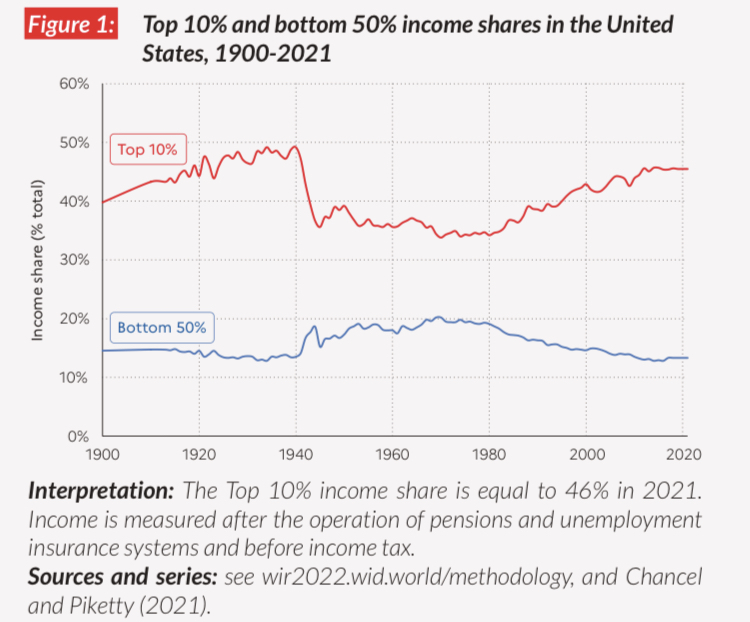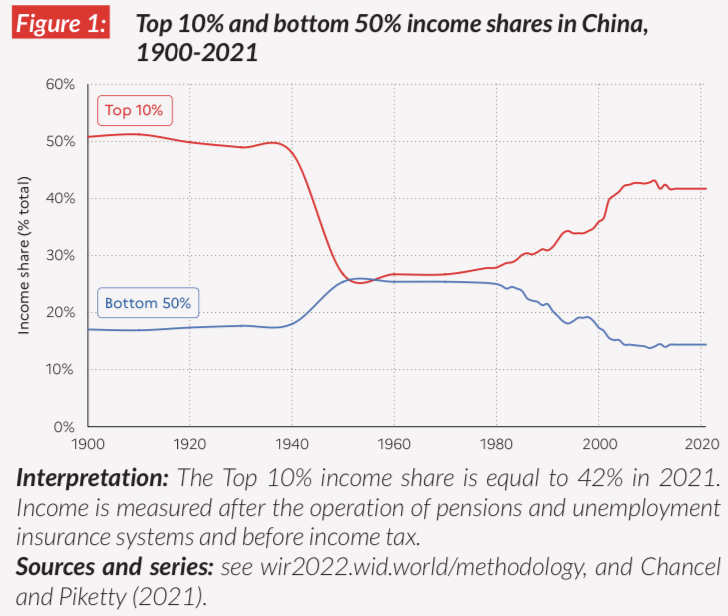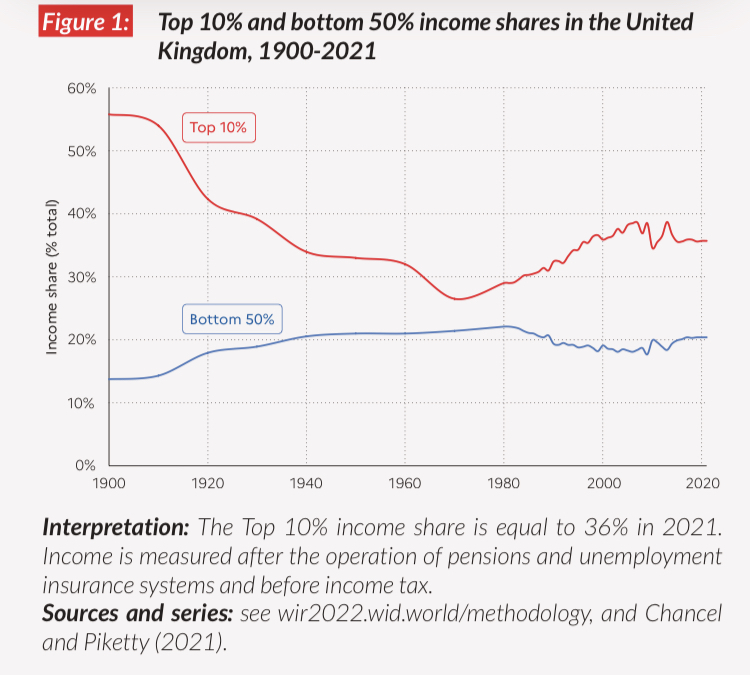Source: Piketty’s World Inequality Report 2022
I shared this deep in a dunk thread earlier and figured there’s probably many comrades who haven’t seen this data. I think it’s very good rhetorically because a lot of libs have an incredibly vibes-based impression that the Soviet Union was just an Animal Farm old-boss-same-as-the-new-boss situation.
Instead, this demonstrates that Russia underwent one of the most dramatic inversions of income inequality of any country in recorded history.
For comparison here is the US over the same time period:

China:

And the UK:



AES is when you ride on the coattails of the work and achievements of the communists who came before you while you lead the country towards capitalism.
I would recommend you read this short essay by Red Sails, particularly this quote by capitalist Deng Xiaoping, cynically saying why socialism must be an act in the future and thus enriching himself and his buddies:
Wait, shit, sorry, that was Marx and Engels. This one is actually Deng:
…
It might be possible that instead of us, living in fully capitalist societies, being the ultimate arbiter of what socialism and communism is and is not, we might instead be the students and the Chinese and Cubans and North Koreans and so on are the teachers.
I agree, we should be students, but whom should we be students of? The countries you mention are not monolithic, and they have obviously had changes in political line and objective conditions over the decades.
Mao and the CPC went through much of the struggle that Marx and Engels describe, but they did it by building socialism, not capitalism. I choose to be a student of the China’s socialist roaders, not China’s capitalist roaders.
This is en excellent book on the subject, with a free PDF download available https://foreignlanguages.press/new-roads/from-victory-to-defeat-pao-yu-ching/
Personally I’m not particularly critical of the China of today, since they’re an important opponent to the imperialism of the Global North. But it is very clear to me that their economy is not socialist, despite them practising democratic centralism and having significantly expanded workers rights compared to neoliberal countries.